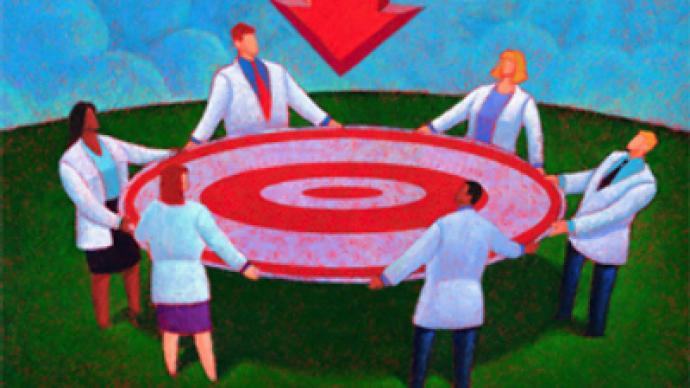Inflation takes a dive as Central Bank looks to nail scourge

Inflation, traditional seen as a weak link of the Russian economy has dropped thought the second half of 2009, with analysts looking for a continued drop over the coming year.
Inflation for 2009 in Russia looks likely to come in at about 9%, with annual inflation to the end of the first week in December amounting to 8.5%. This is likely to be the lowest annual inflation figure since the 9% posted in 2006, and although the official outlook for 2010 is for a repeat, senior officials believe it may come in even lower.
Vladimir Osakovskiy, Head of strategy and research at Unicredit Bank agrees that inflationary pressure will continue to ease during the first half of the coming year, but warns it may move higher after that.
“Already at the beginning of this year we talked about the inflation of 8.8% for 2009, with the tendency to go down further in 2010. I think, it really might reach some 7.5% by the mid 2010, but later in the year I expect it to start growing again for technical reasons. ”
Osakovsky notes the significant impact of the money supply contraction during the early part of this year, pointing to this as placing downward pressure on inflation for some time to come.
“Deferred effect from money supply contraction, which actually started in the end of 2008, will be the main reason. If before money supply grew by an average 40 or 50 % annually than this year it’ll go down by around 6-7%. And lower consumer demand in 2010 will reflect the tendency.”
Clemens Grafe, Chief Economist for Russia and CIS at UBS, is another noting the impact of the money supply contraction. He says that despite rising fuel costs, a stronger rouble, and administrative service increases, prices pressures are likely to continue to weaken through the first half of 2010, and that the Central Bank of Russia is in a position to tackle inflation more effectively going forward.
“In the short term, the three factors are the oil crisis, the exchange rate and administrative services. But in the long run into 2Q and 3Q it’s basically that we have restrictive monetary policies this year and that will continue to drive prices down. Basically, we don’t know if the monetary policy will stay as it is, but it’s very good to hear the central bank talking about 7.5 percent which suggests to me the government is now going to care about inflation in which case it is very possible that we will end up with 6-7 percent for next year.”
Grafe says that in the short term the fuel costs, and administrative service charges will limit falls in inflation, but there is the possibility to drive inflation sharply lower by the end of 2010.
“We expect the inflation in Russia to go down to some 5% next year and basically there will be several factors. The 1Q will be specific in some sectors, with the higher oil prices, thus rising gasoline prices. And we think this will add about 0.5% to the inflation in 1Q 2010. This is a negative factor, of course. Among other negative are the rising price for administrative services and we expect this will have an impact of 1.2% of inflation in January. One more thing is the exchange rate that today is higher than 12 months ago. Taken it all together, we think inflation will fall to 7.5% by the end of the first quarter.
We have 8.5 percent for the full year 2010. We are pretty sure until the middle of the year, maybe into 3Q, after that it is very difficult to forecast because we don’t know what the central bank will be doing.
If they Central Bank don’t make a mistake, inflation will be 5-6 percent by the end of the year.”
Unicredit Bank’s Osakovskiy says the upside for the Russian economy is the chance to slay one of its recent Achilles heels
“Of course, it’ll be generally positive as high inflation in Russia has always been one of the main economic diseases. Now the problem seems to be partially resolved, but that was mainly due to the crisis, not to some substantial changes in the Governmental policy. To be more to the point, lower inflation will mean lower interest rates in the domestic market and probably more certainty and transparency with savings and investment in Russia.”
Grafe believes the easing of inflationary pressure can lay the basis for a firmer economic rebound, and encourage the development of Russian financial markets.
“One thing we will see is that it helps consumption and helps the economy, when prices raise less than expected. In the long run it’s a huge positive for the economy and banking system. You can’t develop Rouble markets unless you have lower inflation. If you 10 percent inflation, then you need rouble interest rates of 15 and that is very dangerous.”












